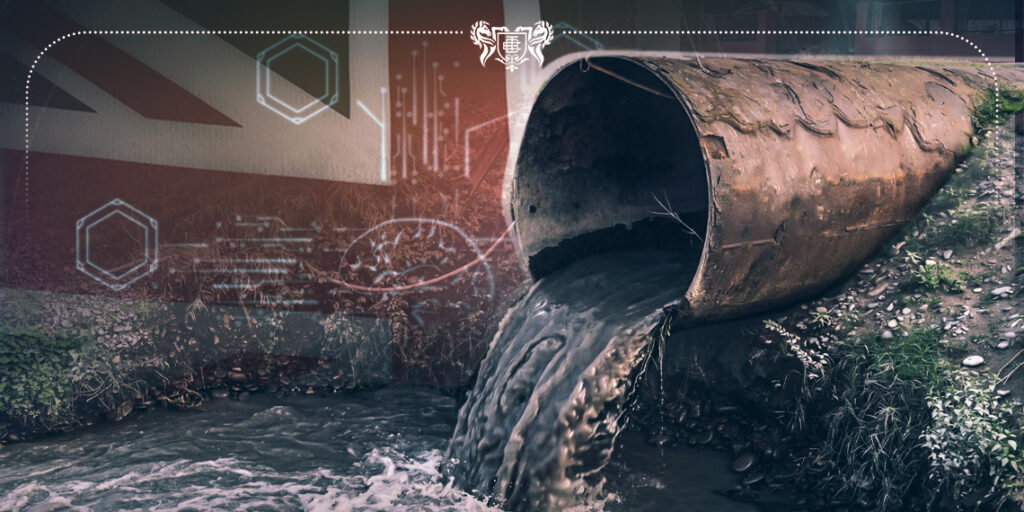An alarming investigation by the Observer has uncovered that numerous water companies in England have “passed” thousands of pollution tests under a self-monitoring regime, even though these tests were never actually conducted.
Operational data from sewage plants across the country indicates that outflows of effluent had ceased—sometimes for just a few hours—on the very days samples were supposed to be taken.
Even though testers were unable to verify whether firms were permitting excessive pollution to enter rivers, the Environment Agency’s regulations allowed these “no-flows” to be recorded as compliant with the environmental conditions stipulated in their operating permits.
Southern Water has already been implicated in “deliberately manipulating” effluent flows to evade pollution detection.
Following investigations into its practices, the number of no-flows reported by the company dramatically decreased.
Peter Hammond from the campaign group Windrush Against Sewage Pollution (Wasp) has analysed no-flow incidents from 2021 to 2023, where sewage plants were marked as compliant with their permits.
He insists that such occurrences warrant a thorough investigation by the regulator and advocates for a complete overhaul of the self-monitoring regime.
“Water companies cannot be allowed to mark their own homework,” he said. “Monthly manual testing of treated sewage must be replaced by continuous automated sampling. Default assumption of permit compliance in the face of failed sampling is totally unacceptable.”
In response to the Observer’s inquiries, the Environment Agency confirmed that it would be amending its regulations, with new rules set to be implemented in early 2025 to close existing loopholes.
Last week, ministers announced the establishment of an independent commission to scrutinise the water sector and its regulations, marking what is anticipated to be the most extensive review of the industry since its privatisation. The water regulator, Ofwat, may face significant reform or even abolition.
Under a contentious self-monitoring scheme introduced in 2009, water firms are permitted to monitor pollution incidents themselves.
Samples for laboratory testing are typically collected by employees of the water companies and supplement the audits conducted by the Environment Agency. The environmental performance of these firms is directly linked to executive remuneration and billing costs.
Through the “operator self-monitoring system”, between 12 and 24 samples are taken from the outflows of sewage works each year to ensure compliance with environmental permits.
If no effluent is flowing, the plant can be reported as compliant, provided the employee collecting the sample is satisfied with the evidence of no flow.
In October 2019, Ofwat announced that Southern Water would pay £126 million in penalties and rebates for breaching licence conditions, including what it termed “artificial no-flows” on certain sampling days. The agency noted that the dates of sampling by employees were meant to be confidential, yet they were easily predicted.
In its findings, Ofwat stated: “As a result of this manipulation, a false picture of Southern Water’s [wastewater] performance was provided internally within the company, to the Environment Agency and to Ofwat.” The regulator calculated that Southern Water avoided penalties of £75 million during price reviews due to these manipulations.
Following the investigation, the number of no-flows reported by Southern Water plummeted from 124 in 2017 to just 12 in 2018. From 2021 to 2023, approximately 120,000 samples were taken from sewage plants in England, with around 5,000 recorded as no-flows.
Wasp has identified 18 instances at 14 plants involving seven water firms from 2021 to 2023, where no-flows were reported on the same day that samples were collected. In some cases, prior tests indicated that the plants were at risk of breaching or had already breached their environmental permits.
Wasp argues that the agency should investigate each instance thoroughly, emphasising that it is unacceptable for a plant to be deemed compliant when no samples were taken.
Water companies assert that there are legitimate reasons for the no-flows, such as blockages, power cuts, planned maintenance, tankering of sewage to other facilities, and intermittent flow. They claim that strict safeguards are in place to prevent manipulation of self-monitoring procedures.
A spokesperson for Water UK stated: “It is up to the regulator to set the rules on testing, and for companies to follow whichever regime they impose. The current approach has tightly-controlled requirements that include detailed obligations about the timing and frequency of samples, and how they should be taken.”
The Environment Agency indicated that it will revise its rules from 1 January, mandating water companies to reschedule a sample if no effluent is flowing from the plant. Water firms will also be required to document instances of no-flow and provide this information for subsequent audits by the agency.
On average, about 5% of samples taken each year are no-flows, which is comparable to no-flow rates observed during agency sampling. Officials noted that companies might legitimately opt to transport flows away from a plant rather than discharge poor-quality effluent.
An Environment Agency spokesperson remarked: “We investigates no-flow samples where there is a risk to the environment or if we suspect that an offence has occurred.”
The agency is currently conducting its largest criminal investigation into potential widespread non-compliance among water companies and is recruiting up to 500 additional staff to enhance compliance checks.
Ofwat has committed to reviewing Hammond’s report. A spokesperson stated: “We have ongoing enforcement activity against all 11 water and wastewater companies. As part of this investigation, we will consider whether they are fulfilling their obligations to protect the environment and minimise pollution. All relevant evidence will be taken into account.”
In light of the findings, Southern Water has initiated a “root-and-branch” review in response to the shortcomings identified in Ofwat’s 2019 report. A spokesperson asserted: “Processes and systems were radically changed to ensure that all no-flow events were genuine,” a spokesperson said. “We remain committed to transparently providing the best possible data and disclosure.”


